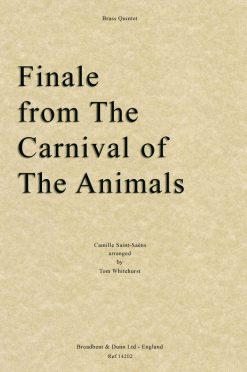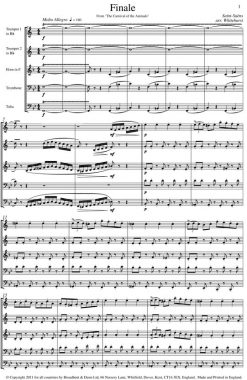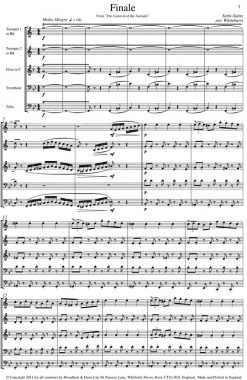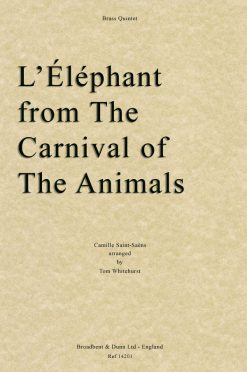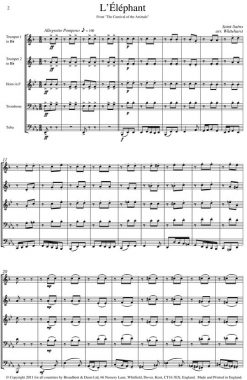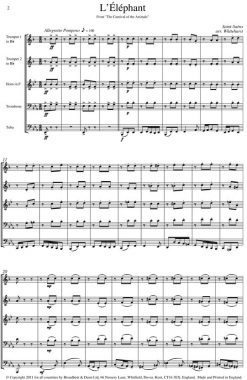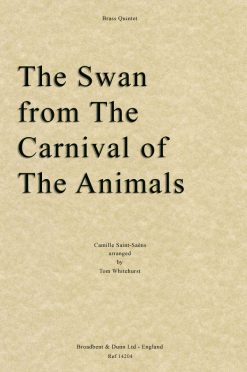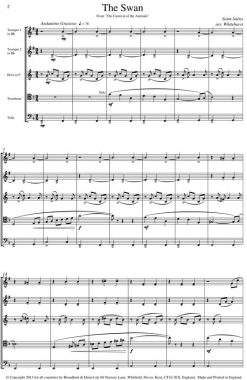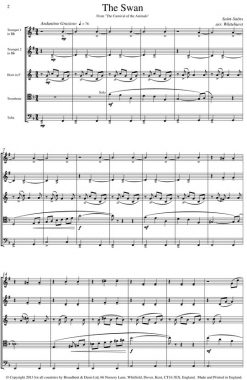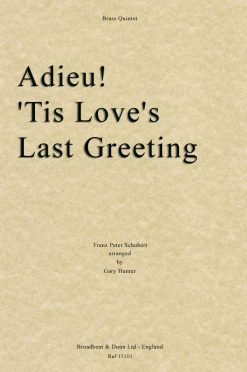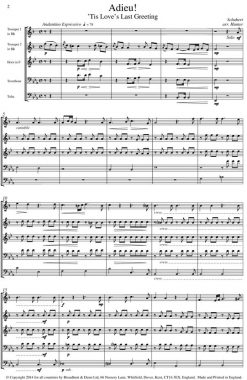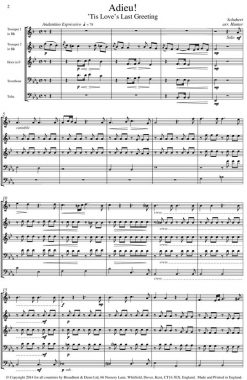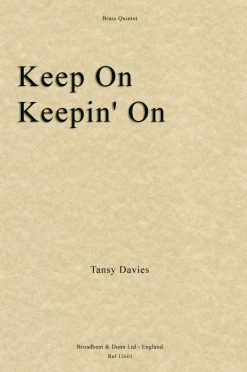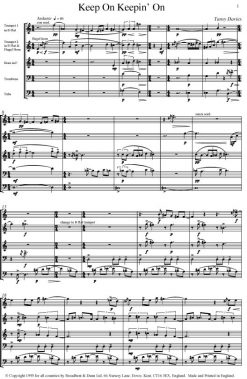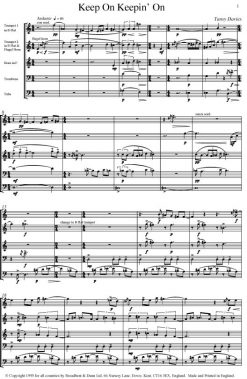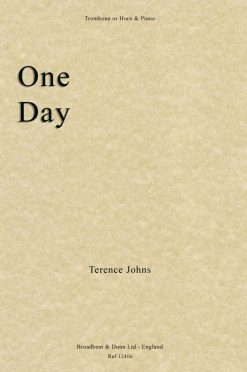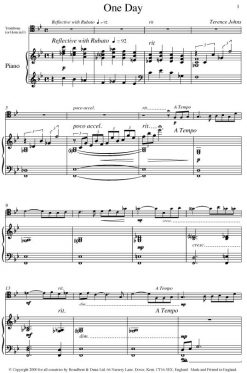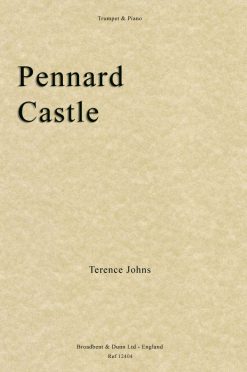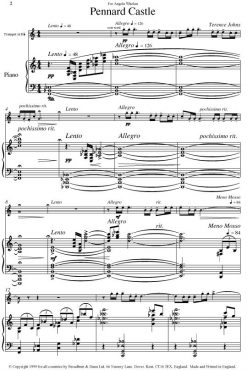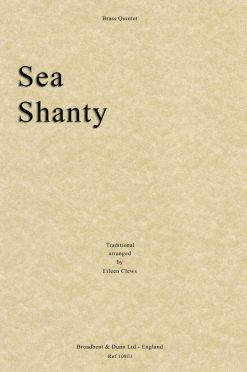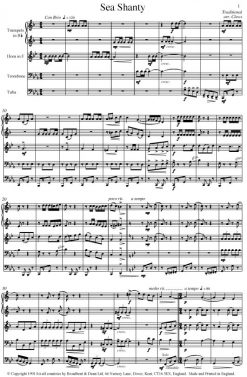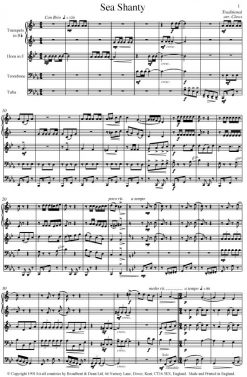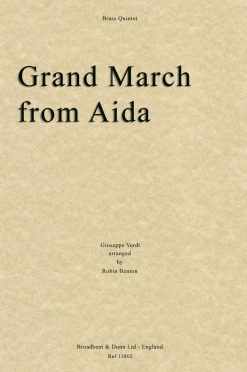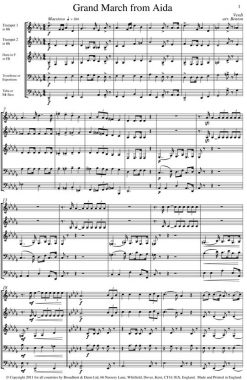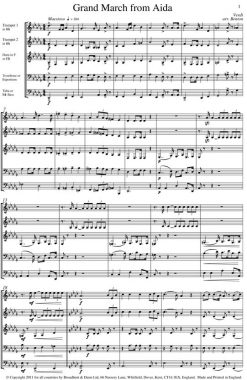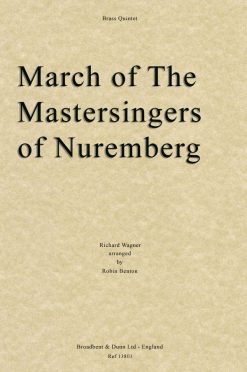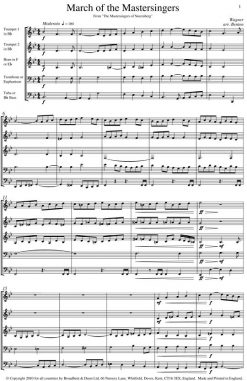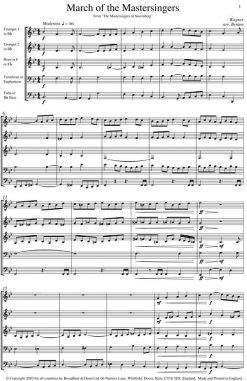Brass Quintet
Saint-Saëns – Finale from The Carnival of the Animals (Brass Quintet) – Parts Digital Download
Brass Quintet
Saint-Saëns – Finale from The Carnival of the Animals (Brass Quintet) – Score Digital Download
Brass Quintet
Saint-Saëns – L’Éléphant from The Carnival of the Animals (Brass Quintet) – Parts Digital Download
Brass Quintet
Saint-Saëns – L’Éléphant from The Carnival of the Animals (Brass Quintet) – Score Digital Download
Brass Quintet
Saint-Saëns – The Swan from The Carnival of the Animals (Brass Quintet) – Parts Digital Download
Brass Quintet
Saint-Saëns – The Swan from The Carnival of the Animals (Brass Quintet) – Score Digital Download
Brass Quintet
Horn & Piano
Trumpet & Piano
Trinity College London Advanced Certificate (Grade 8 Equivalent) Exam Piece until further notice.
Inspired by a water colour by Robert Fowler from the book Beautiful Wales, this piece was written for Angela Whelan of Fine Arts Brass and has been widely performed by Mark O'Keefe, principal trumpet of the BBC Scottish Symphony Orchestra. The music evokes the image of the ruined castle with a mysterious introduction of muted fanfares reminiscent of ancient battles. The main middle section is a broad melody, Welsh in character in the style of a folk song with harp-like accompaniment. This piece has been a Trinity College London Advanced Certificate (Grade 8 Equivalent) exam piece since 2008.
Trinity College London Advanced Certificate (Grade 8 Equivalent) Exam Piece until further notice.
Inspired by a water colour by Robert Fowler from the book Beautiful Wales, this piece was written for Angela Whelan of Fine Arts Brass and has been widely performed by Mark O'Keefe, principal trumpet of the BBC Scottish Symphony Orchestra. The music evokes the image of the ruined castle with a mysterious introduction of muted fanfares reminiscent of ancient battles. The main middle section is a broad melody, Welsh in character in the style of a folk song with harp-like accompaniment. This piece has been a Trinity College London Advanced Certificate (Grade 8 Equivalent) exam piece since 2008.
Brass Quintet
Brass Quintet
Brass Quintet
Wagner – March of The Mastersingers of Nuremberg (Brass Quintet) – Parts Digital Download
Brass Quintet
Wagner – March of The Mastersingers of Nuremberg (Brass Quintet) – Score Digital Download

